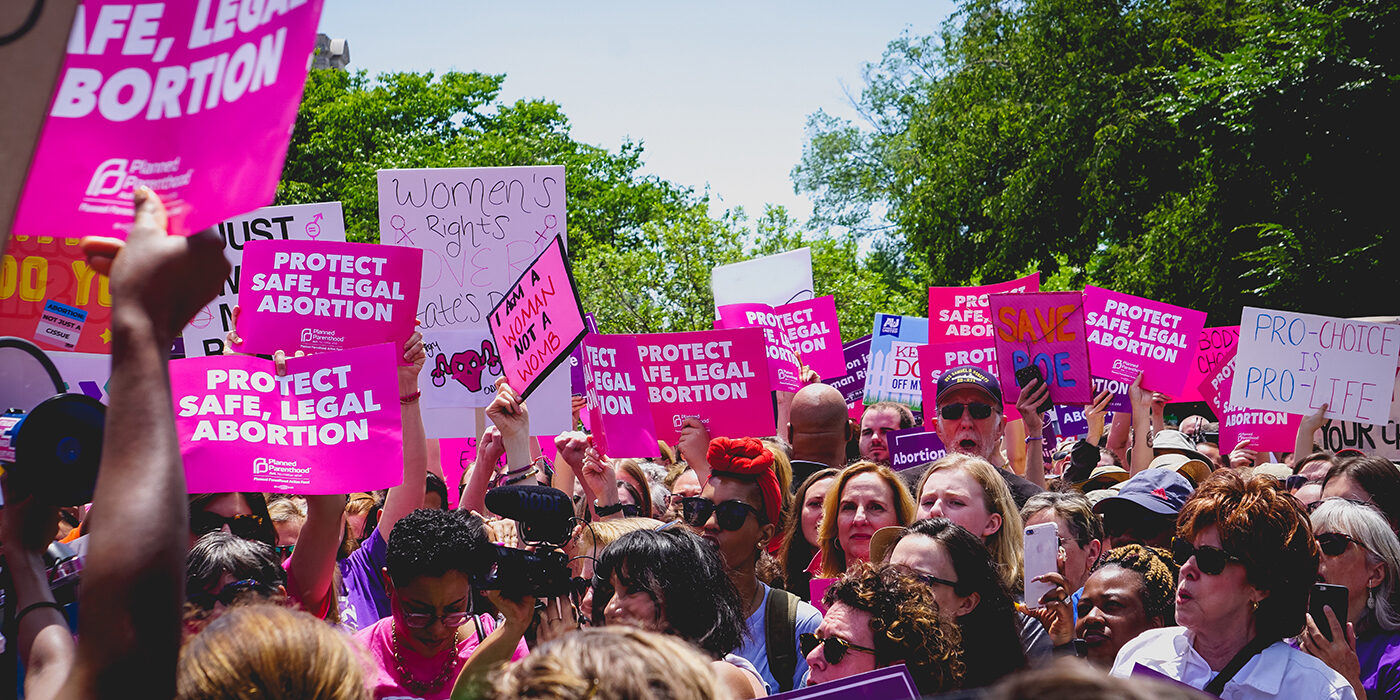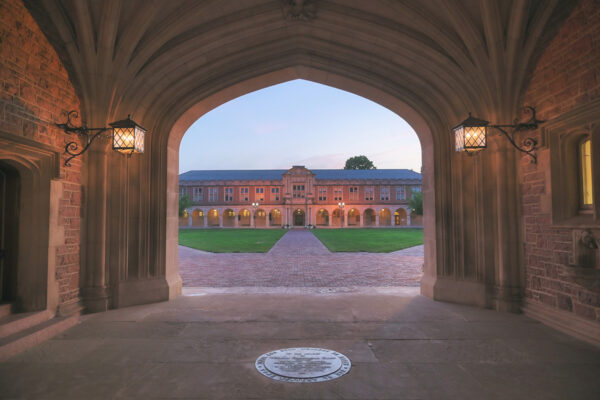Last week, the U.S. Supreme Court heard arguments in Dobbs v. Jackson Women’s Health Organization, which is considered by many to be the most significant battle over abortion rights in decades. If the court upholds the Mississippi law or overturns Roe v. Wade altogether, as the justices appeared poised to do, 21 states likely will ban or curtail access to abortions in short order.
However, the current debate over reproductive rights — which focuses exclusively on legal access to abortion and birth control — is too narrow and does not address the complexity of issues people face, both structurally and personally, according to Zakiya Luna, associate professor of sociology in Arts & Sciences at Washington University in St. Louis.
“When we focus exclusively on abortion, we miss that it is part of a reproductive spectrum,” said Luna, who is author of “Reproductive Rights as Human Rights: Women of Color and the Fight for Reproductive Justice.”

“Most people spend decades of their life in combinations of trying to prevent pregnancy (their own or someone else’s); have children (themselves or through other means like adoption); form families (with or without kids); and keep that family healthy and happy. But it is not like these are all separate categories.”
Luna argues that the country should shift its focus to reproductive justice, which expands the conversation to include the broader range of reproductive experiences.
“The reproductive justice movement focuses on the resources people need to actually utilize their rights,” Luna said. “Reproductive justice came from women of color and takes the whole discussion a step further by noting that beyond the right to not have children (e.g., birth control, abortion), it’s also necessary to consider the right to have children and the right to parent with dignity.”
How women of color are leading fight for reproductive justice
Women of color have historically played an important — although often unseen — role in the fight for reproductive freedom, according to Luna.
“Women of color have a unique experience regarding reproduction in this country. We and our families have been fighting for reproductive control of our lives from the beginning. Going back to the founding of this nation, Indigenous people had their families torn apart by colonizers who took their children and tried to ‘civilize’ them by forcing them into boarding schools.
“Enslaved Black women birthed children who the law did not even consider theirs — children born to a slave were legally the master’s property. These are just a couple examples of how communities of color were not allowed to have children or to parent their children historically,” she said.
“Moving to the 20th century, state and county governments forcibly sterilized groups of people, including immigrants, people with disabilities, people convicted of crimes and basically anyone seen as a threat to building a pure nation. People of color were part of these groups, too, although not exclusively.”
According to Luna, the reproductive justice movement has grown significantly over the last 15 years in part because it benefits all women and families. “As one of the movement founders, Loretta Ross, says, reproductive justice was started by women of color, but it is not only for them,” she said.
I hope anyone reading this would think about how they can help rather than focus on what they cannot do. Movements are made up of everyday people who are doing their little bit to help.
Zakiya Luna
What will happen if Roe v. Wade is overturned?
If the court rules in favor of Mississippi or overturns Roe v. Wade, Luna said women of color will be disproportionately impacted. Today, 75% of abortion patients are low income. Women of color — specifically, Black, Latina and Indigenous — are disproportionately low income.
“Abortion has been part of the U.S. for centuries. When Roe v. Wade was decided, there were already different views on abortion in the states,” she said. “The patchwork of laws meant some states had legal access and some states had explicit restrictions. So, people who had the money to travel went to states like California and New York to get abortions or even other countries. Just like people do now.”
However, if Roe v. Wade is overturned, there’s reason to believe it will have far-reaching effects beyond low-income women most affected by current restrictions, Luna said.
“Economic inequality has only increased since Roe was decided as the economic structure has changed drastically in the U.S.,” she said. “Fewer jobs come with health care, and medical care in general has become a more complicated system. Additionally, child care costs have risen significantly.”
“If Roe is overturned, anyone who gets pregnant and the people who love them will be facing a different set of realities in a post-Roe world.”
Hope is more productive than despair
With people on both sides of the debate claiming that Roe v. Wade is as good as dead, abortion rights supporters may be feeling hopeless right now. To those people, Luna offers the following advice:
“Creating change is a long-term process. When people are sitting isolated, just watching the news or listening to the Supreme Court, it is pretty easy to be in despair,” she said. “But despair does not lead to making change.
“Each action we take on an issue we care about has an effect; we just can’t always see it in front of us. That’s why I think it is important to be connected to some type of setting where people are engaged with the issues at a practical level. There are organizations in every state connecting people who care about reproductive justice to concrete ways to make change.”
From housing people who are traveling in or out of state for services, to donating water for an upcoming protest, to simply donating money, there are a range of ways to support reproductive justice-minded organizations, Luna said.
“I hope anyone reading this would think about how they can help rather than focus on what they cannot do. Movements are made up of everyday people who are doing their little bit to help,” she said.



